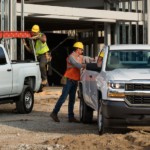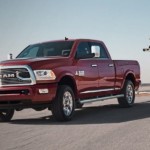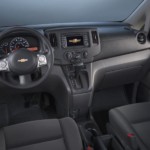Millennials seeking a more “authentic” life are hitting the road in growing numbers. The old method of ditching settled life for traveling nomadism involved buying an old RV, hooking it up to an old pickup truck, and crossing your fingers. Today, restless and roving wanderers are instead flocking to their local commercial vehicle dealer for their transportation.
What does a commercial vehicle have to do with this off-the-grid traveling lifestyle? Well, in a word, everything. Commercial vans have the goods to offer a one-stop-shop for transportation and living accommodations under a single tidy and fuel-efficient roof – no more tow hooks or trailering and no more special licenses. These savvy buyers are finding ways to repurpose trucks and vans into cozy tiny homes with wheels.
The Chevy lineup of commercial vehicles is a good example. The Express commercial van is a favorite among budget-minded converters. It’s a blank canvas that can be turned into a mobile homestead, complete with working plumbing and cable. The idea of building a vehicle like these vans is to start with a template, a skeleton. From there, it’s a combination of vision, some handyman skills, and an assortment of building materials.
Where did this trend start, and how are commercial truck dealers working to create vehicles and aftermarket prep packages that meet this new niche buyer? It’s an interesting and growing segment, somewhat of an adjunct to the popular RV industry, but somehow cooler. Are American auto manufacturers prepared for this wave of commercial buyers? We take a look at the trend and how automakers are responding.
Commercial Vehicle vs RVs
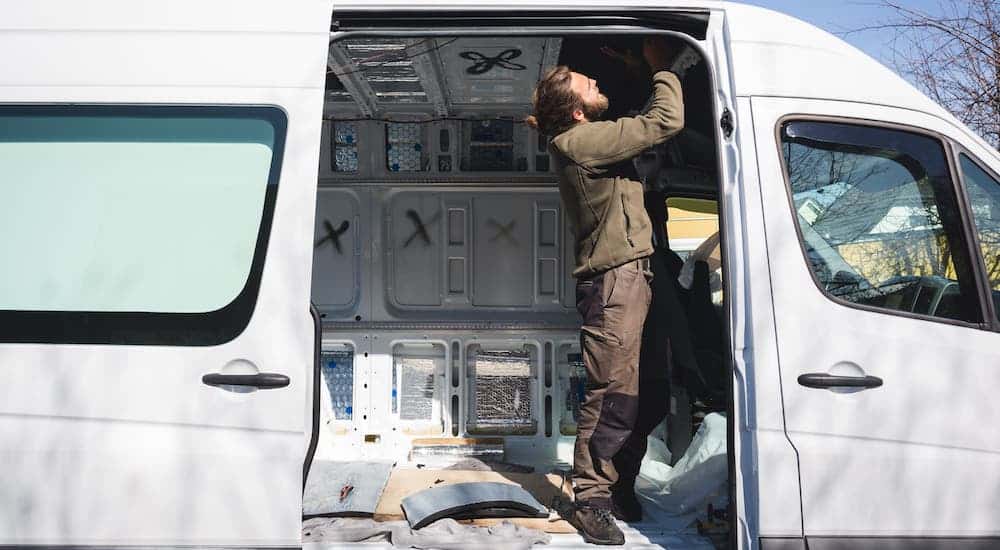
With so many RV variants available – from fifth-wheel trailers to rambling campers – why go to the trouble of converting a commercial vehicle? The answer is simple: the freedom to customize and thrift. Much like the tiny house movement before it, the van life trend emerged with a group of young millennials looking to escape conformity. They didn’t want the job, the mortgage, or the white picket fence, but they didn’t have the cash to buy an expensive RV. Enter the commercial van.
The trend caught on, thanks to social media fueling the romance of a nomadic lifestyle. Stylized vans, twinkle lights, and happy dogs flooded Instagram, along with YouTube videos touting epic conversion before-and-after reveals. It was mesmerizing to watch ambitious travelers transforming stripped Chevy Express vans and other commercial vehicles into bohemian oases. From hunting down a previously neglected commercial van to hitting the open road, the lifestyle drew thousands looking for a non-traditional way to live.
Van life, also known as vandwelling, has caught on and spiked an entire startup industry. Aftermarket van conversion outfitters offering custom-built parts like composting toilets, retrofitted cabinets, and self-install kits, are everywhere. DIY videos have flooded social media, making it easier than ever for anyone interested in hitting the road to upfit (convert) a van of their own. It begs the question: is this fundamentally changing the commercial vehicle market? Are manufacturers adapting their commercial lines to accommodate personal use buyers?
How Automakers Are Responding
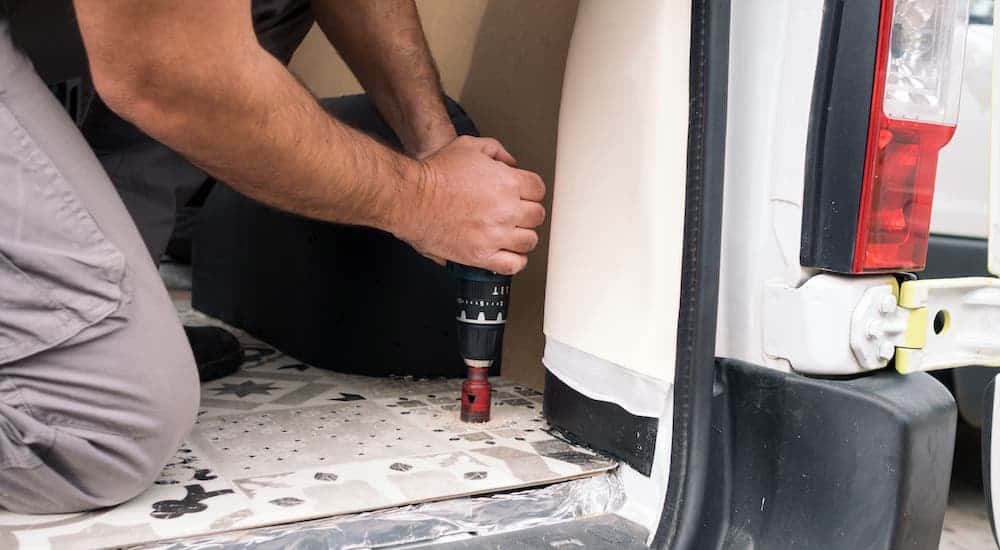
To date, there has been surprisingly little response from the major manufacturers. It’s likely that we will eventually see unique vehicles designed specifically for this new type of van buyer, but there is a careful balance because vandwellers usually don’t have a large amount of money to spend on a fully-finished camper van. Also, factory vans may be seen as lacking the DIY authenticity that’s at the core of the movement, coming across as more of a traditional RV.
It’s here that the Big 3 have an advantage: these companies recognize how important imagination and elbow grease are to the process. Instead of diving headlong into the segment with new models, automakers like Chevrolet remain steadfast with their commercial vehicle lineups, positioning conversion candidates, like the Express and the Cutaway, as bare-bones templates, just like they have all along for commercial buyers. These vehicles are designed with purpose and capability in mind, and they’re designed for conversion. Camper vans are just another upfitting option.
Because of this consistent approach, the same traditional commercial vehicles are just as conversion-ready for vandwellers as they have always been for delivery companies, contractors, or shuttle service providers. Chevy supplies the template, leaving the company or individual to choose how to upfit the vehicle for its intended use. It’s a better move to focus on increasing production of the core commercial lineup to meet demand than it is to adapt the lineup for the niche buyer.
This isn’t the first iteration of the camper van lifestyle. Van life first emerged as a counterculture movement decades ago, and small communities of nomadic wanderers have embraced it over the years, just like today. The difference is social media and the modern internet economy. With the romance hitting the mainstream via highly stylized images and romantic blog posts, popularity has surged. Further, it is now far easier to support yourself without being tied to a traditional job – in fact, for some people, van life is their job as they document their lifestyle on social media.
Savvy Commercial Dealers Have the Advantage
Typically, auto manufacturers lead their dealer networks through new product launches, beginning with research and development and continuing through marketing and, ultimately, the vehicle’s launch. In the case of the camper van, there is a role reversal, and local dealers are taking the initiative to adapt their showrooms and retrain staff to service camper van buyers.
Historically, commercial truck dealers train their sales staff to cater to traditional businesses, like plumbing contractors, delivery companies, and fleet buyers. These days, it’s not uncommon for a 20-something couple to wander into a commercial dealer in search of a used conversion van or even a new one. Trained consultants who understand that this buyer is an individual, not a business, are essential.
Take the Chevy example again: nowhere on the Chevrolet website, including GM media and the individual commercial vehicles’ pages, is there evidence that the automaker is adapting its commercial line to accommodate this buyer. Instead, Chevy continues to nudge the customer toward its network of Business Elite dealerships. However, individual buyers typically need guidance on a one-to-one level to bridge the knowledge gap and help them zero in on the type of equipment they’ll need for a camper van conversion.
Whether their ambitions lean toward a simple, bare-bones Express van conversion or they’ve set their sights on a Cutaway model for a more ambitious conversion, these intrepid buyers are prepared to put down their life savings to secure a home on wheels. The industry continues to play catch-up, working to develop vehicles and equipment packages that help win market share and earn the affections of would-be converters. Savvy commercial dealers have taken advantage of this growing market niche by providing prospective individual van buyers with the services they need.
If visions of crisscrossing the country in a mobile studio apartment are occupying your thoughts, a commercial vehicle dealer is a great place to start. These specially-trained experts understand the more technical elements of the conversion process, like electrical considerations. These details, the ones that don’t show up in the stylized Instagram posts, are the meat-and-potatoes details vandwellers need. Luckily, there’s untapped expertise right at your neighborhood commercial dealer.

